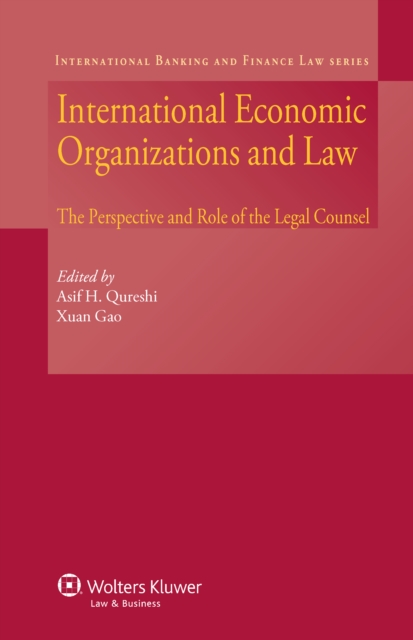
International Economic Organizations and Law : The Perspective and Role of The Legal Counsel EPUB
by Asif H. Qureshi
EPUB
Description
There can be little doubt that a group of prominent and influential organizations lie at the heart of international economic law (IEL).
These include the Bretton Woods institutions, regional development banks and economic organizations, and various specialized global institutions primarily active in norm generation.
This volume possesses the unique distinction of presenting the perspectives - both institutional and personal - of legal counsels in some key international economic organizations regarding their work and the role of law within the framework of their organizations, with particular attention to the conditions within which they can optimally contribute to the development of IEL.
This last consideration is emphasized in three 'external' academic perspectives that focus mainly on what the role of counsels in international economic organizations ought to be.
Each first-hand perspective focuses on counsel's involvement in such aspects of IEL as the following: providing internal advice on the law of the organization; assisting members with respect to domestic institutions and law in the economic sphere; to what extent (if any) legal counsels are normally involved in policy making for issues that are not strictly of a legal nature; intellectual contributions both to the development of international law and the dissemination and exchange of legal knowledge among various stakeholders; ethical challenges and response to possible conflicts of interests; generation of soft law economic instruments; legal issues on replenishment of resources for development funding; setting of internationally recognized standards or best practices for commercial and financial legislation; informal networks of lawyers and lawyer functions which cut across institutional and territorial boundaries; and negotiation and management of free trade agreements from a legal perspective.
Information
-
Download - Immediately Available
- Format:EPUB
- Pages:512 pages
- Publisher:Wolters Kluwer
- Publication Date:10/04/2012
- Category:
- ISBN:9789041142030
Information
-
Download - Immediately Available
- Format:EPUB
- Pages:512 pages
- Publisher:Wolters Kluwer
- Publication Date:10/04/2012
- Category:
- ISBN:9789041142030






